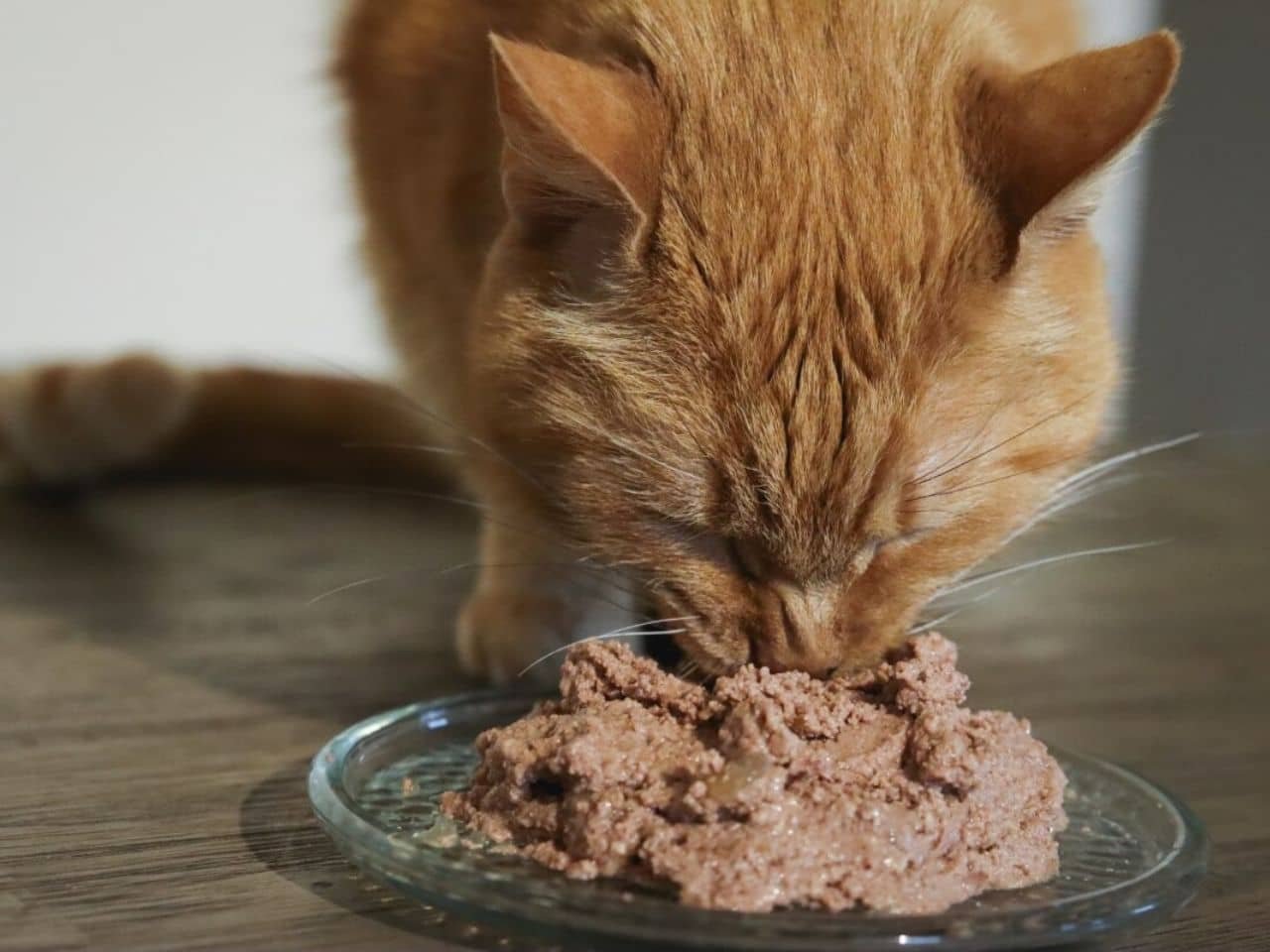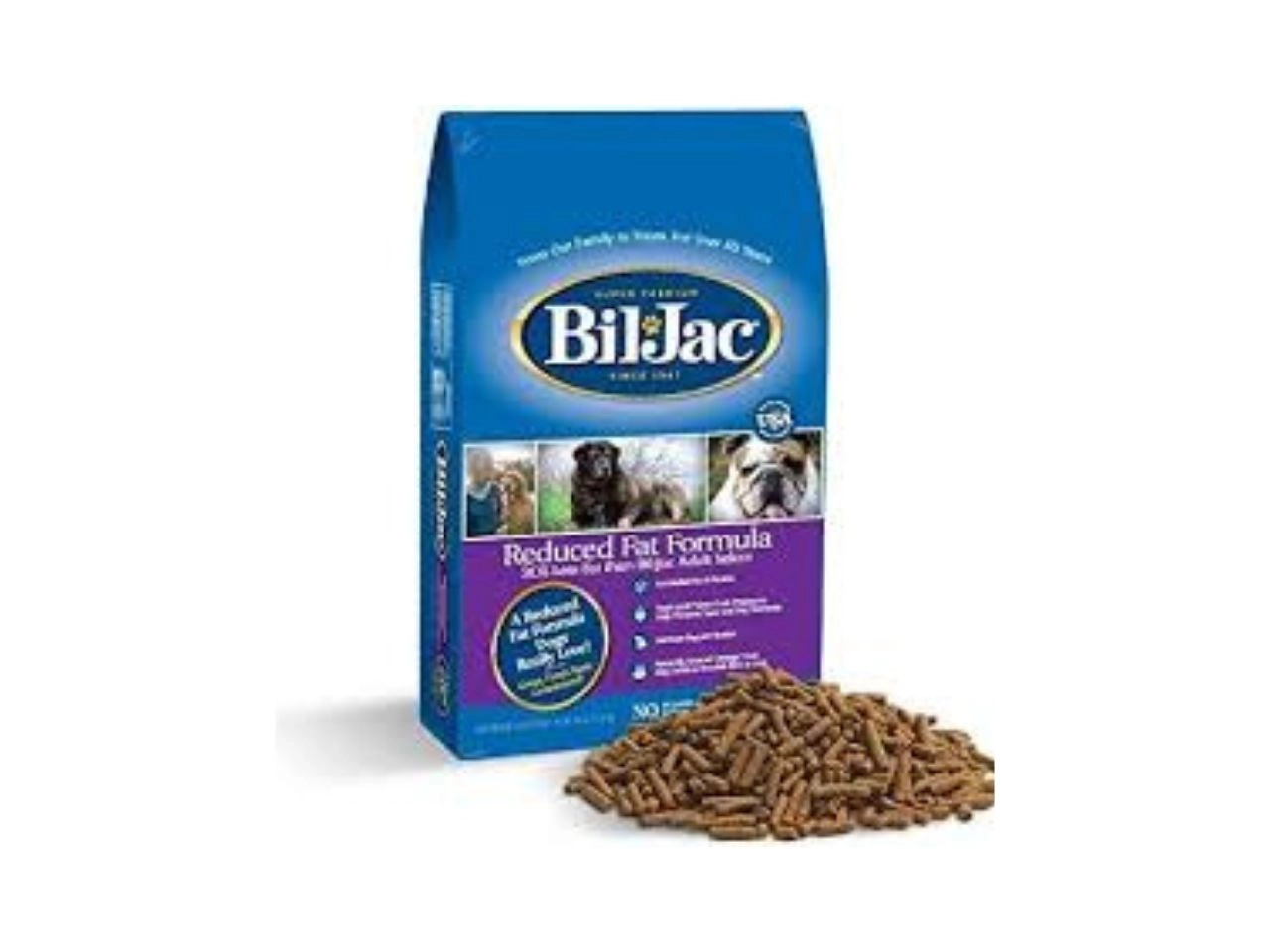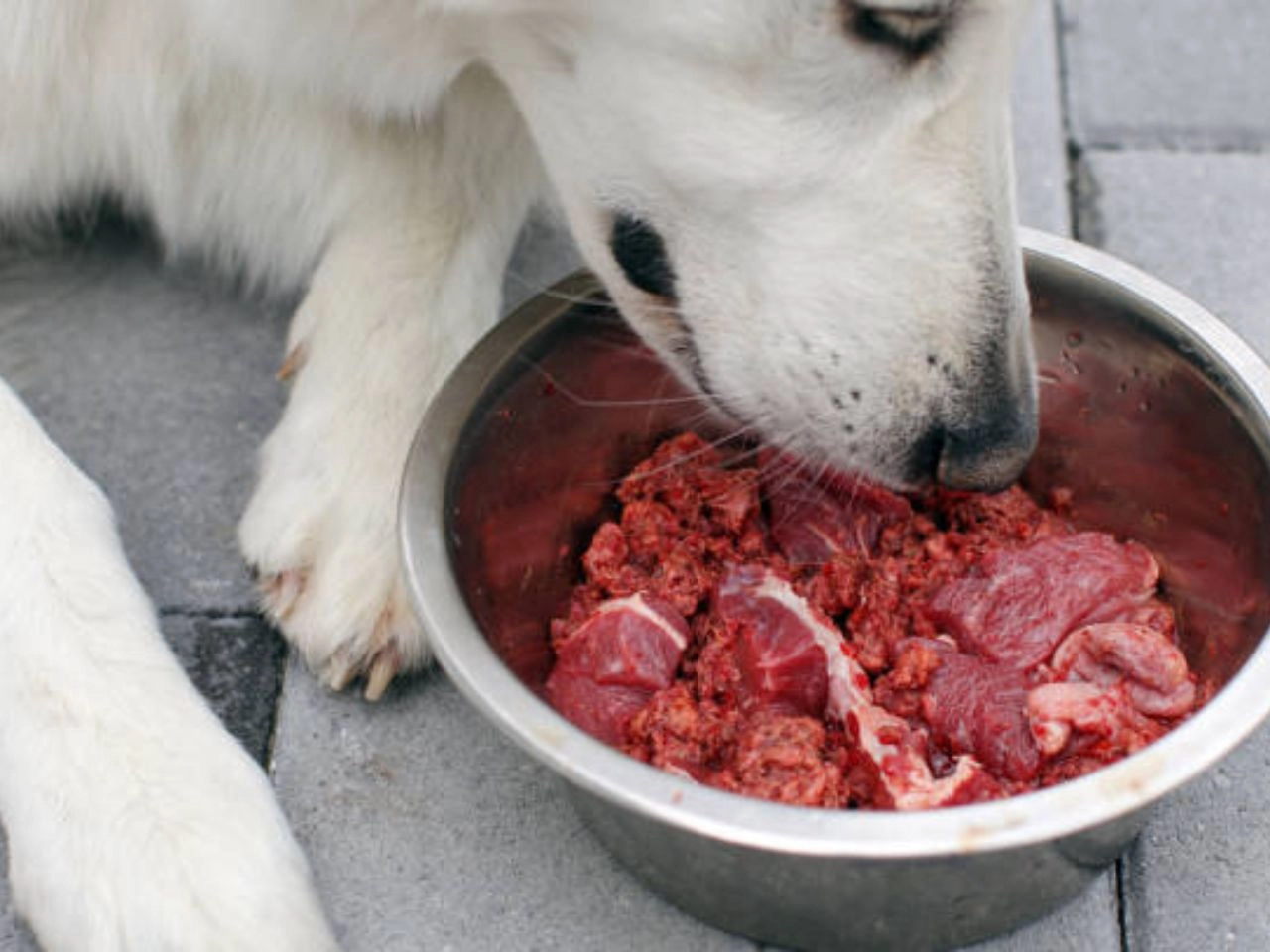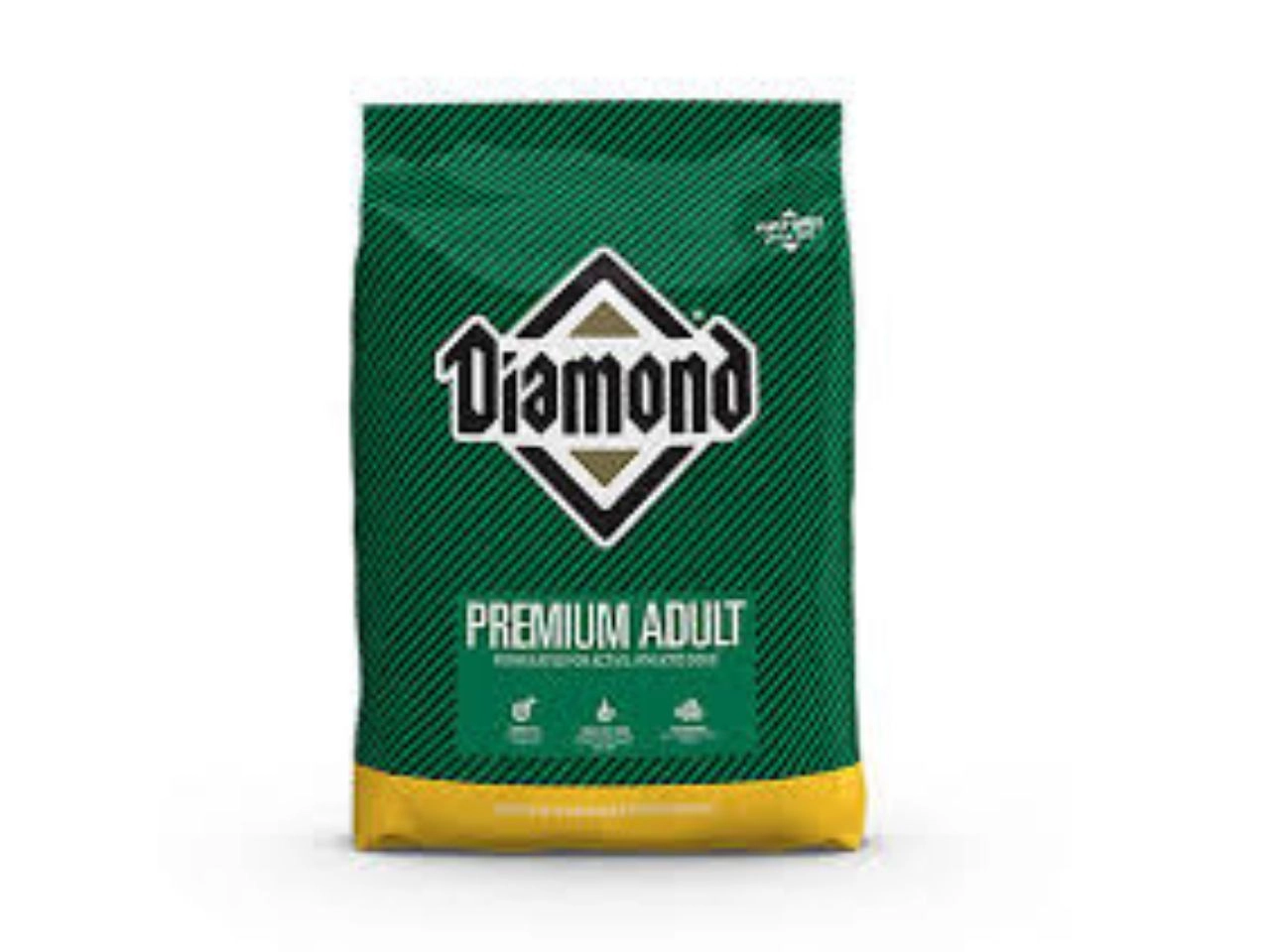A whole-food diet for dogs focuses on natural, minimally processed foods. This diet emphasizes the importance of fresh, high-quality ingredients for canine health.

Embracing a whole-food diet for your canine companion means prioritizing nutritional integrity and freshness. By choosing unrefined options, you’re likely to see improvements in your dog’s energy levels, coat health, and overall well-being. This dietary approach steers clear of artificial additives and preservatives, common in many commercial dog foods, which can lead to health issues over time.
Owners who opt for this path often report enhanced vitality in their pets, along with a natural way to manage weight and potentially reduce allergy symptoms. Transitioning to a whole food regimen requires careful consideration of your dog’s specific needs and consultation with a veterinarian to ensure a balanced intake of all the essential nutrients. As the trend towards holistic pet care continues to gain traction, more dog owners are discovering the benefits of whole-food diets, making it a topic of growing interest in the pet wellness community.
The Rise Of Whole Food Diets For Dogs
Whole-food diets for dogs are gaining momentum. Discerning pet owners now seek nutrition beyond the traditional kibble. Whole food diets focus on natural, minimally processed ingredients. They often include fresh meats, vegetables, and grains. This shift mirrors the human trend towards cleaner eating.
Why More Pet Owners Are Choosing Whole Foods
Freshness and quality drive the move to whole foods for dogs. Pet owners want meals that could grace their own tables. They understand that dogs thrive on nutrient-rich, whole-food diets.
- Improved health: Dogs may display better skin, coat, and digestion.
- Longevity: Nutrient-dense foods can contribute to longer, healthier lives.
- Less processing: Whole foods maintain more natural vitamins and minerals.
Comparing Whole Foods To Commercial Dog Diets
Whole-food diets often contrast with commercial dog food options. Pet owners question the additives and preservatives in standard dog food.
| Whole Foods Diet | Commercial Dog Diet |
| Natural ingredients | May include by-products |
| No artificial preservatives | Preservatives often used |
| Customizable for allergies | One-size-fits-all formulas |
Defining Whole Food Nutrition For Canines
Understanding whole food nutrition for dogs means looking at their diets the way nature intended. Dogs thrive on a diet rich in nutritious, minimally processed foods. Whole food nutrition focuses on fresh, unrefined ingredients that are close to their natural state.
Key Components Of A Whole Food Diet
A balanced whole-food diet for dogs includes several key elements:
- Proteins: Lean meats, fish, and eggs provide essential amino acids.
- Fats: Healthy fats from sources like flaxseed and fish oil support overall health.
- Carbohydrates: Whole grains and vegetables offer energy and fiber.
- Vitamins and minerals: A variety of fruits and vegetables deliver crucial nutrients.
The Importance Of Fresh Ingredients
Using fresh ingredients ensures dogs get the maximum nutritional benefits. The fresher the food, the more potent its vitamins and enzymes. A table can illustrate the difference in nutrient levels between fresh and processed foods:
| Ingredient | Fresh | Processed |
| Vitamins | High | Low |
| Enzymes | Intact | Destroyed |
| Fiber | Abundant | Reduced |
Benefits Of Whole Food Diets For Dogs
Whole-food diets for dogs are gaining popularity among pet owners. These diets focus on fresh, minimally processed foods. They provide nutrients in their most natural form. Let’s explore the benefits of feeding your furry friends a whole-food diet.
Boosting Health And Vitality
A whole-food diet enhances a dog’s overall well-being. Here are some key advantages:
- Improved Digestion: Whole foods are rich in fiber, aiding in healthy digestion.
- Better Skin and Coat: Natural oils and nutrients in whole foods promote a shiny coat and healthy skin.
- Enhanced Immune System: Antioxidants and vitamins in whole foods boost the immune system.
- More Energy: Wholesome ingredients supply steady energy for play and exercise.
Impact On Longevity And Disease Prevention
Feeding dogs a whole-food diet can lead to longer, healthier lives. Consider these points:
| Diet Feature | Health Benefit |
| No Artificial Additives | Reduces risk of allergies and sensitivities. |
| High-Quality Proteins | Supports muscle development and maintenance. |
| Natural Vitamins and Minerals | Prevents nutrient deficiencies, promoting longevity. |
| Whole Grains and Vegetables | Low in calories, helps prevent obesity and related diseases. |
Transitioning Your Dog To A Whole Food Diet
Thinking about switching your dog to a whole-food diet? This change can boost your dog’s health. Whole foods are packed with nutrients. They offer a fresh alternative to processed dog foods. Transitioning should be gradual to ensure it’s easy on your dog’s digestive system.
Step-by-step Transition Process
Start slow. Mix a small amount of whole food with their current food. Gradually increase the whole food amount over two weeks.
- Day 1-3: Serve 75% regular food and 25% whole food.
- Day 4-6: Adjust to 50% regular food and 50% whole food.
- Day 7-9: Move to 25% regular food and 75% whole food.
- Day 10: Switch entirely to whole food.
Monitoring Your Dog’s Adaptation
Watch your dog closely as they adjust to their new diet. Look for signs of good health or any issues.
- Positive signs: More energy, shiny coat, and good digestion.
- Signs of issues: Upset stomach, lack of energy, or skin problems.
If issues arise, consult your vet. They can provide guidance tailored to your dog’s needs.
Remember, each dog is unique. Adaptation can vary. Patience and careful monitoring are key to a successful diet change.
Essential Nutrients In A Whole Food Diet For Dog
When it comes to feeding our furry friends, a whole-food diet brims with benefits. It’s packed with natural nutrients that are essential for your dog’s health. Unlike processed dog foods, a whole-food diet for dogs includes fresh, unprocessed ingredients that provide a balanced mix of proteins, fats, carbohydrates, vitamins, and minerals. Let’s dive into the key components that make this diet a powerhouse for your pup’s well-being.
Proteins
Proteins are the building blocks of your dog’s body. They are crucial for muscle growth, tissue repair, and a strong immune system. A whole food diet for dogs should include high-quality protein sources like:
- Lean meats (chicken, turkey, beef)
- Fish
- Eggs
Fats And Carbohydrates
Fats provide energy and help absorb vitamins. They keep your dog’s coat shiny and skin healthy. Carbohydrates offer fiber which aids digestion. Sources of healthy fats and carbohydrates include:
| Fats | Carbohydrates |
| Coconut oil | Sweet potatoes |
| Fish oil | Pumpkin |
| Flaxseed | Brown rice |
Vitamins And Minerals Essentials
Vitamins and minerals support various body functions and prevent disease. They are vital for bone health, nerve function, and overall vitality. In a whole-food diet, these essentials come from a variety of sources:
- Fruits (apples, blueberries)
- Vegetables (carrots, spinach)
- Seeds (chia, hemp)
Remember, balance is key. Every meal should be a careful mix of these nutrients to ensure your dog’s diet is complete.
Homemade Vs. Store-bought Whole Food Options
Choosing the right diet for dogs sparks a big debate: Homemade vs. Store-Bought Whole Food Options. Each choice affects your dog’s health and your daily routine. Let’s explore both paths.
Pros And Cons Of Homemade Diets
Homemade dog diets offer control over ingredients. You select high-quality foods. But, they require time and knowledge.
| Pros | Cons |
Customizable to your dog’s needs fresh, no preservativesVaried menu keeps dogs interested | Time-consuming to prepare lack of nutritional balance is more expensive |
What To Look For In Commercial Whole Food Brands
Quality varies in store-bought diets. Look for transparency and quality.
- Whole proteins should top the ingredient list
- Look for minimal processing
- No artificial colors, flavors, or preservatives
- Brands with vet nutritionist input are best
Safe Foods And Toxic Foods For Dogs
Understanding which foods are safe or toxic for dogs is vital. This guide helps dog owners make smart choices for their pets’ diets.
Commonly Safe Whole Foods
Many whole foods can be healthy additions to your dog’s diet. Here’s a list of dog-friendly options:
- Carrots: Crunchy and good for teeth.
- Apples: Remove seeds; they are harmful.
- Chicken: Fully cooked and no bones.
- Pumpkin: Great for digestion.
- Green beans: Plain and cooked are best.
Dangerous Foods To Avoid
Certain foods can be harmful to dogs. Avoid these:
| Food | Reason to Avoid |
| Chocolate | Contains theobromine, which is toxic to dogs. |
| Grapes & Raisins | Can cause kidney failure. |
| Onions & Garlic | Can lead to anemia. |
| Xylitol | Found in gum; can cause liver failure. |
| Avocado | Persin in avocado is harmful to dogs. |
Tailoring The Diet To Your Dog’s Needs
A whole-food diet can do wonders for your dog’s health. It’s vital to customize the diet. Your dog’s breed, age, and health shape their nutritional needs. Let’s explore how to adjust their diet for optimal health.
Considerations For Different Breeds
Different dog breeds have unique dietary requirements. Size, energy levels, and genetic makeup influence their food needs. Here’s a quick guide:
- Small Breeds: Need calorie-dense foods to support their fast metabolism.
- Large Breeds: Require food that supports joint health and prevents obesity.
- Active Breeds: Benefit from higher protein and fat for energy.
Match your dog’s food to their breed-specific needs for a happier, healthier pet.
Adjusting For Age And Health Conditions
Age and health also dictate your dog’s diet. Puppies, adults, and seniors need different nutrients.
| Life Stage | Key Nutrients | Considerations |
| Puppies | High protein, fats, DHA | Support growth and brain development |
| Adults | Balanced nutrients, fiber | Maintain weight and energy |
| Seniors | Glucosamine, antioxidants | Reduce inflammation, support immunity |
Supplementing A Whole Food Diet
A whole food diet can greatly benefit your dog’s health, providing them with all the necessary nutrients through natural ingredients. Yet, sometimes, even the best diets may need a little boost. That’s where supplements come into play. They can fill in nutritional gaps and support your dog’s health in specific areas.
When Supplements Are Necessary
Supplements may become essential if your dog:
- Has allergies or food sensitivities
- Is experiencing stress or anxiety
- Is a senior with joint issues
- Has a specific medical condition
Always consult your vet before starting any supplements. They can test for deficiencies and recommend the right ones.
Choosing High-quality Supplements
With so many options, picking the right supplement can be tough. Here’s what to look for:
| Quality Indicator | What to Check |
| Ingredients | Look for whole food ingredients with no fillers or artificial additives. |
| Brand Reputation | Choose brands with positive reviews and expert endorsements. |
| Manufacturing Standards | Ensure they meet national quality standards and have third-party testing. |
| Form | Opt for forms your dog will easily consume, like powders or chewable tablets. |
Understanding Allergies And Food Sensitivities
Many dogs suffer from allergies and food sensitivities, affecting their health and happiness. A whole-food diet for dogs can often alleviate these issues. Tailoring a dog’s diet to avoid allergens and irritants can lead to improved well-being. Let’s explore how to identify and address food sensitivities and allergies in canines.
Identifying Allergic Reactions
Signs of food allergies in dogs include skin rashes, itching, and digestive upset. Chronic ear infections or paw licking can also indicate an allergic reaction. To identify the culprit, a veterinary consult and an elimination diet are vital steps.
- Monitor symptoms closely
- Record dietary changes
- Seek professional advice
Customizing The Diet For Sensitive Dogs
Dogs with food sensitivities require a customized diet plan. Focus on whole, unprocessed ingredients that are free from common allergens. Often, a diet rich in lean meats, vegetables, and hypoallergenic grains or grain alternatives suits sensitive dogs well.
| Food Type | Benefits |
| Lean meats | High in protein, low in allergenic compounds |
| Vegetables | Provides fiber and essential vitamins |
| Hypoallergenic grains | Safe starch sources for energy |
The Role Of Probiotics And Digestive Enzymes
The Role of Probiotics and Digestive Enzymes in a dog’s diet is crucial for maintaining optimal digestive health. These components work together to break down food, absorb nutrients, and keep the gut environment in balance. Understanding their benefits can help dog owners make informed choices for their furry friends.
Supporting Digestive Health
A whole-food diet enriched with probiotics and digestive enzymes supports a dog’s gastrointestinal system. Probiotics are beneficial bacteria that keep the gut flora balanced. Digestive enzymes, on the other hand, aid in breaking down food into absorbable nutrients.
- Probiotics combat harmful bacteria.
- Enzymes facilitate efficient digestion.
- Together, they promote nutrient absorption and reduce gastrointestinal issues.
Integrating Probiotics Into The Diet
Introducing probiotics into a dog’s diet can be simple. High-quality commercial foods often contain added probiotics. Dog owners can also choose natural sources like yogurt or kefir.
| Food Item | Probiotic Content |
| Yogurt | Live cultures |
| Kefir | Diverse bacteria |
| Fermented vegetables | Natural probiotics |
Case Studies: Success Stories Of Whole Food Diets
Discover how a whole-food diet can transform a dog’s life through compelling case studies. These success stories highlight the benefits and real-world applications of whole-food diets for our canine companions.
Real-life Transformations
Dogs across the globe are thriving on whole-food diets. Here are a few tales:
- Max’s Allergy Relief: A Labrador with chronic itches now enjoys scratch-free days.
- Bella’s Weight Loss: This Beagle shed excess pounds and regained her zest for walks.
- Rocky’s Energy Boost: A senior Boxer rediscovered his puppy-like energy.
Veterinarian Insights On Whole Food Benefits
Experts in animal health witness the impact of whole-food diets:
| Veterinarian | Observation | Outcome |
| Dr. Smith | Noticed fewer digestive issues in dogs on whole foods | Improved gut health |
| Dr. Lee | Observed better coat condition | Shinier fur and less shedding |
| Dr. Patel | Saw enhanced immune responses | Fewer sick days for dogs |
Getting Started With Whole Foods For Your Dog
Ready to explore the whole food diet for your beloved pup? A whole-food diet can offer your dog a host of benefits. It includes fresh, natural ingredients instead of processed foods. Let’s dive into creating a meal plan that will have your dog’s tail wagging with health and happiness!

Creating A Balanced Meal Plan
Balance is key in a dog’s diet just as it is in ours. Start by choosing a variety of whole foods. This includes lean meats, fresh vegetables, and whole grains. These foods provide the nutrients your dog needs. Aim for a mix of:
- Proteins: Chicken, beef, fish, or eggs
- Carbohydrates: Brown rice, quinoa, or sweet potatoes
- Fiber: Green beans, carrots, or pumpkin
- Fats: Flaxseed oil or coconut oil
Remember to introduce new foods gradually. This will help prevent stomach upsets. Also, keep portion sizes appropriate for your dog’s size, age, and activity level.
Consulting With A Veterinary Nutritionist
Seek guidance from a professional before changing your dog’s diet. A veterinary nutritionist can help create a tailored plan. This ensures your dog gets all essential nutrients. They can also advise on:
- Correct portion sizes
- Safe food handling
- Supplement needs
Find a certified nutritionist through reputable organizations. They will work with your dog’s specific health concerns. This ensures a smooth transition to whole foods.
FAQ(Whole Food Diet for Dogs)
Is A Whole Food Diet Better For Dogs?
A whole food diet can be beneficial for dogs, supporting healthier digestion and improved energy levels. It often includes fresher ingredients that provide natural nutrients. Always consult a vet to tailor the diet to your dog’s specific health needs.
What Is The Healthiest Food To Feed Your Dog?
The healthiest food for dogs is a balanced diet of high-quality, protein-rich meats, whole grains, and fresh vegetables, formulated to meet their nutritional needs.
What Whole Foods Can I Give My Dog?
You can give your dog whole foods like lean meats, carrots, apples, and plain pumpkin. Always avoid toxic foods like onions, grapes, and chocolate.
What Can I Feed My Dog Instead Of Dog Food?
You can feed your dog cooked lean meats, rice, and certain vegetables like carrots and green beans. Always avoid onions, chocolate, and grapes. Remember to consult your vet before changing your dog’s diet.
Embracing a whole-food diet for your dog can lead to noticeable health benefits. From improved energy levels to a shinier coat, the advantages are clear. Remember, consulting with a vet before making dietary changes is crucial. Start your pet on the path to better health with a whole-food approach today!











